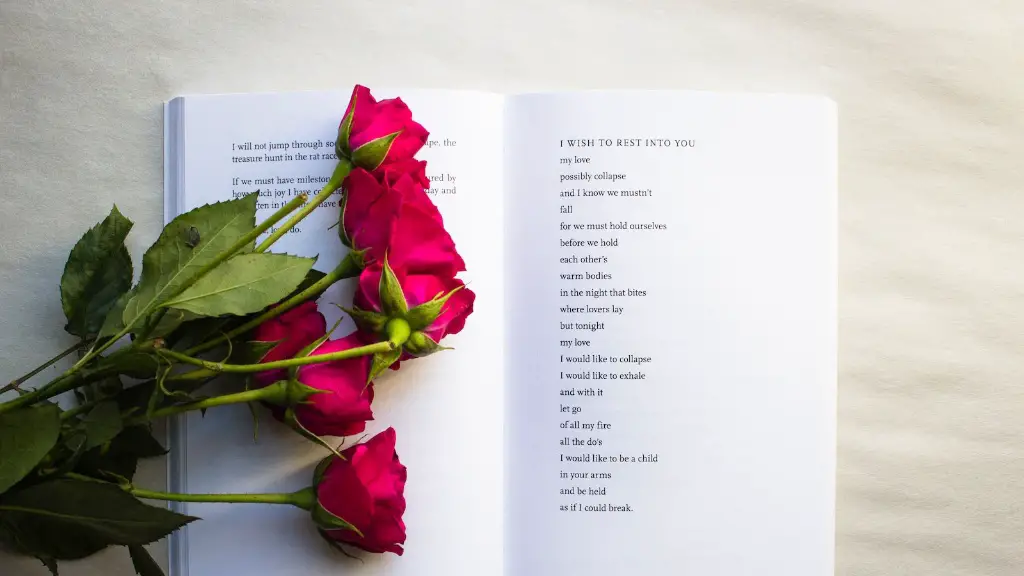Poetry and its Impact in Society
Poetry has been a timeless form of expression since its first emergence in Ancient Greece as a tool for probing individual experience, understanding the world and creating beautiful language.
It is unique in its expressivity and universal in its reach. Poems are written, read, and performed by people from all types of backgrounds and cultures all over the world today and through the ages.
Not only can a poem induce emotion and provide beauty, but it has a very impactful capability for conveying ideas and thoughts in a concise but often deep way. Poetry can be used to speak out about social injustices and issues and has been a vehicle for protest and reform.
From Dr. Suess’ rhyming rollicking books to War and Peace, poetry has both delighted and moved people. It has taught us to think deeply about our lives and the world we live in. It questions, it provokes, and it inspires.
Aside from the way poems are currently used, the most fundamental important part of poetry is the creative element it offers to developing minds. As an art form, it allows people to express themselves in ways that are completely unique and personal.
The power of poetry lies in its ability to make complex emotions, ideas or messages easier to comprehend. It can reduce the abstract to something tangible and relatable. Poetry can be used as a tool to reveal the creativity within each individual by facilitating a vigorous exchange of ideas and practices.
If society was forgo its poetic heritage, it means we’d be forgoing an interpretive and creative form of expression. Poetry reminds us that our minds are capable of both creativity and contentment.
The Relevance of Poetry in Education
In school classrooms, poetry can often seem old-fashioned and highly academic, but it can also be very exciting and meaningful. Poetry has a huge role to play in learning and education.
It can be a great way of exploring ideas without being too didactic or prescriptive. Through comparing different poems and their literary features, such as atmosphere, metaphor, imagery and rhyme, children can better understand the complexity of language and gain a greater understanding of the world.
Furthermore, poetry is special because it can be studied from different angles and gives pupils the chance to look into the motivations behind its creation. As such, poetry can provide a strong foundation for not just writing skills, but also for the development of literacy more generally.
The introduction of poetry in the classroom can also be of great benefit to students’ personal development. It encourages multiple perspectives, creativity and innovation, thus preparing them for the world in a modern way.
Poetry also provides language learners with an enjoyable way to practice their language skills. Poetry can be used to study the structure of languages, their sounds and their characters. Through the analysis of its form, language learners can come to understand the concept of meaning in multiple ways.
Lastly, poetry is an important genre of literature which can provide access to other cultures. By studying the works of world-renowned authors such as William Shakespeare, Langston Hughes and T.S Eliot, children can gain a deep insight into the diverse cultures, eras, and literary styles which have shaped our world.
The Role of Poetry in Literature
Poetry has an intrinsic value to enrich the arts and literature, providing one of the most traditional and broad forms of writing. Authors of poetry are significant voices in today’s society, reconfiguring their words and stories to provide both comfort and instruction.
Their works communicate both the spoken and the unspeakable and inform the thoughts of generations to come with unique perspectives. Poetry invites us to see beauty in language, to ponder, and to be moved. In an age of rapid technological growth, poetry stands as an example of timelessness and endurance.
Poetry also allows readers to observe the world in new ways, encouraging creative thought and problem-solving abilities. Through it, we might find a new understanding of the way we interact, an appreciation of the hidden narrative around us and an enhanced aspects of our day-to-day observations.
Pervading our culture, poetry has been at the heart of revolutions and protest. It is proven to create awareness and understanding, and allow people to stand up for what they believe in. Writers such as Maya Angelou, Roque Dalton and Malcolm X have utilized poetry throughout history, to give voice to the voiceless and drive political and social change forward.
Today, the digitalization of the world has led to the revival and accessibility of poetry, providing more and more new readers with accessible online portals such as Twitter and Instagram.
The Role of Poetry in Mental Health
Poetry offers a unique way of expressing feeling and understanding the world. The ability to express our emotions can be a great solace, especially during times of distress. The creative writing process itself has been tested to show substantial therapeutic effects.
By expressing emotion through words and metaphors, we can come to accept and understand our feelings, allowing the reader to increase his/her sense of mental wellbeing. It can provide an insight into our innermost thoughts, exploring our personal worlds and revealing hidden perspectives, realisations, or intentions.
Furthermore, understanding poetry can be a great way of reducing stress, as it is an activity that requires concentration and engages the mind, encouraging deeper understanding and focusing on the task at hand. Moreover, reading and understanding poetry can increase creativity and critical thinking source.
Poetry can also be used to explore and manage difficult emotions, thereby creating a safe space for people to ask difficult questions and find inner balance. It can encourage openness towards a variety of perspectives and illustrate the different ways of thinking.
In today’s society, poetry can play a supportive role in addressing the effects of mental health issues, allowing people to confront and work through their issues in creative ways which are safe and effective.
The Value of Poetry in Society
Poetry has been a vehicle of change since the beginning of time and has been highlighted as a prominent form of expression through its evident presence in the literary works of civilizations around the world.
Nowadays, poetry can be a great source of introspection and provide an avenue for challenging social paradigms and beliefs. It is an opportunity to generate a dialogue and to express opinions, feelings, and opinions which might otherwise remain unheard in society.
There is no denying the importance of poetry in today’s society. As a popular form of both written and oral expression, poetry has the power to connect us, to shape our communities and to expand our perception of the world. As such, it can be considered an invaluable tool for social change.
Poetry is an integral part of the cultural fabric which can bring us closer together. It plays an indispensable role in allowing voices to be heard and inspiring new thoughts and understanding.
Finally, for those of us who need to let out our innermost thoughts and emotions, poetry can provide a safe place for expression and release. As such, it is an invaluable artistic form that warrants recognition, celebration, and understanding.
The Future of Poetry in Society
The implications of poetry’s constant presence within society are vast. As we progress, its use in education, literature, personal wellbeing and social development continue to appreciate.
Today’s educators are beginning to recognize the educational and collaborative possibilities of poetry as a medium for communication. In the years to come, we should therefore expect to witness a growing number of educational initiatives and artistic practices which utilize its captivating features.
Its presence in the digital space should also spread in upcoming years, tapping into the growing accessibility of digital networks with virtual readings, digital showcases, podcasts and creative film production.
Moreover, its role in mental health is likely to gain greater prominence as professionals continue to come to terms with the importance of poetic expression in facilitating self-care, self-reflection, and personal development.
Ultimately, the future of poetry in the 21st century will reflect many of its traditional roles. It will continue to be a life-enriching experiencer, an educational tool, and a voice for social change.




